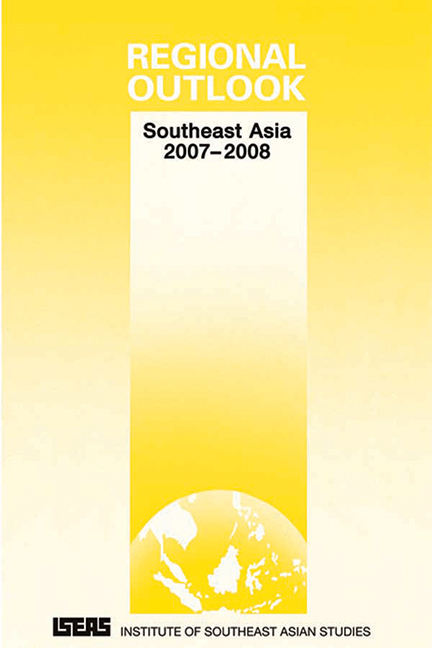The Asian Security Environment
from POLITICAL OUTLOOK
Published online by Cambridge University Press: 21 October 2015
Summary
Since the departure of Vietnamese forces from Cambodia in 1989, no Southeast Asian country has been subject to the threat of crossborder armed attack. Thus, the Association of Southeast Asian Nations (ASEAN) has maintained its proud record of having no member in violent conflict with another. The ASEAN norm of settling inter-state disputes peacefully has continued to be upheld.
In the larger East Asia region, however, there remain potential causes of inter-state conflict, or at least of regional instability, which thus concern Southeast Asia. As frequently noted, there are three specific potential flashpoints — the South China Sea, the Korean Peninsula, and the Taiwan Straits.
The disputes over conflicting claims to all or parts of the South China Sea have become quiescent partly because of ASEAN's success in getting China to negotiate on the issue with the member-states as a group. This process culminated in the adoption in 2002 of an informal code of conduct that commits the parties to settle disputes peacefully, guarantee freedom of navigation and over-flight in the area, and exercise “self-restraint”. The parties are also to undertake certain confidence-building measures and cooperate in a number of areas. However, although such measures and cooperation have been carried out, the fact that the conflicting sovereignty claims have not been resolved can still cause trouble and instability in the future.
Another issue that has region-wide and even global repercussions involves North Korea's possession of nuclear weapons and its capacity to make, test and deliver them. North Korea carried out a nuclear test explosion in October 2006, and although Pyongyang has agreed to return to the Six-Party Talks there is no guarantee that the forum will succeed in bringing about a nuclear-free Korean peninsula. Apart from its general destabilizing and threatening effect, a nucleararmed North Korea might compel — or give an excuse to — Japan to arm itself with offensive, even nuclear, weapons, a development that would inevitably provoke a strong backlash from China and others.
- Type
- Chapter
- Information
- Regional OutlookSoutheast Asia 2007-2008, pp. 3 - 16Publisher: ISEAS–Yusof Ishak InstitutePrint publication year: 2007



